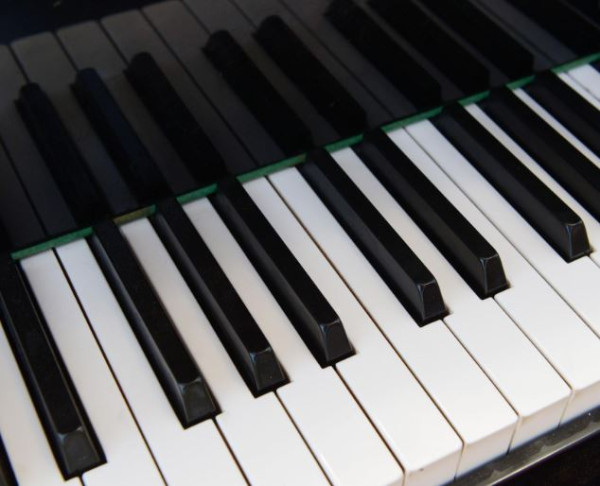- Home
- Music Tuition
- Exams and Assessments
- MusicAwards
- MusicAwards - Levels 1 and 2
Celebrate your progress with a MusicAward - exclusively available to Musica Kirklees pupils receiving Option A/B/C/D tuition. MusicAwards give a gentle introduction to assessments without the pressures or higher cost of a formal exam.
Your teacher will let you know if you're ready to take a Level 1 or 2 MusicAward, which is of an equivalent level to grade 1 and 2 exam content.
As with all assessments, please discuss your options with your teacher to find the right pathway for you/your child.
Levels 1 and 2 Assessments
MusicAwards or Music Exams?
Music exams are run by exam boards who offer accredited qualifications. At intermediate to advanced grades, these qualifications carry UCAS points or count towards entry for music courses.
Pupils gain important experience from taking early grade music exams, but they do cost a premium (£59+ for grade 1 for 2025, not including accompanist or certificate printing fees). MusicAwards Levels 1 and 2 are not accredited qualifications, but they do give pupils the experience of a grade 1 or 2 exam with an assessment at a more affordable price (£26 for 2025-26). You'll also receive a certificate and mark sheet included in this cost.
After Level 2, pupils will be experienced at taking music assessments and will be ready to progress to grade 3+ music exams with the exam board of their choice.
Assessment Content
Assessments are made by submitting a recorded video performance of 4 pieces and some scales or studies (similar to Digital Exams).
The teacher will record the performance in the pupil's lesson and submit it for assessment.
Unlike music exams, with MusicAward assessments pupils can:
- choose to play any pieces of an appropriate skill level - no need to purchase exam books
- record each piece individually to ensure that you submit your best performance - ideal for those new to assessments
- enjoy flexibility - no time limits or closing dates
- play/sing with their teacher during lessons - no accompanist fees
Application Process
When pupils are ready to take an assessment, the teacher will send you an online where you apply and make payment.
With your teacher's consent, you can apply for MusicAwards at any time (no closing dates).
Other types of exams and assessments
Please speak with your teacher if you'd like to discuss the assessment or exam options for you/your child.
MusicAwards - Foundation Award >
Instrumental or Singing Exams >
What will the Assessor be looking for?
Fluency and Accuracy
Fluency
When someone is fluent in a language, they can read aloud words and sentences in a precise and flowing way, with minimal hesitation and using the right intonation. The same applies to musical fluency except we have notes instead of words and musical phrases instead of sentences. Our musical fluency improves over time with practice as we become familiar with the piece or scales we are performing.Accuracy
This is another area of musicianship that improves with practice. A composer will write down the exact notes and rhythms for us to play/sing. The Assessor will compare the recorded performance with the written music to see if the performer uses the correct rhythms and pitch.
Technical Facility
There are specific techniques that all musicians must use to get the most from their instrument or singing.
All these elements come together to produce the optimum sound (known as 'tonal quality'). The Assessor will be looking for:
Articulation and Phrasing (all)
Playing/singing each note and considering it within the context of a longer 'phrase' of music. In singing, this also includes correct diction.Bowing (strings)
Up and down strokes played at the correct time, and accurate placement to avoid catching the wrong strings.Breath Control / Embouchure (woodwind, brass and singing)
Taking a breath at the appropriate point, and channelling that breath in the right way. Blowing the instrument with a secure technique to create a pleasing sound.
Finger or Slide Placement (woodwind, trombone, strings, guitar, ukulele)
Placing the finger in the correct place (or slide position on trombones) for accurate tuningFingering (woodwind, strings, guitars, ukuele, keyboard, piano)
Placing the correct finger or thumb on a key, strumming accurately or pressing and plucking a string with the appropriate digitStick Technique (percussion)
The sticks should be held correctly and the instrument struck in the right place to produce the best quality soundCommunication and Interpretation
Once you have learnt the notes and techniques, you can take your musicality to the next level with how you communicate with your performance:
Clarity
Every note is there for a reason - try your best to sing/play them all as clearly as you can
Dynamics
As well as which notes to play, the written music will use words or symbols to tell you how those notes should be performed. How loud/soft should they be? Should they be short and spikey or smooth and flowing? Follow these carefully to enhance your performance.
Convey Meaning
Your piece/song may be meant to represent an emotion, idea or style of music. Does the way you are performing the piece convey that meaning?
Tempo
Each piece should be played at a specific speed. This is the 'Tempo'. Once you have learnt your piece, try to keep your tempo the same throughout; it is tempting to speed up at the end, or slow down for difficult parts without realising it!
Each of the 4 pieces will be awarded up to 9 marks (a possible 3 marks for Fluency and Accuracy, 3 for Technical Facility and 3 for Communication and Interpretation per piece).
An additional 3 marks are available for scales/arpeggios/aural work.
Total 10 - 16 marks = Pass Total 17 - 23 = Merit Total 24 - 30 = Distinction


